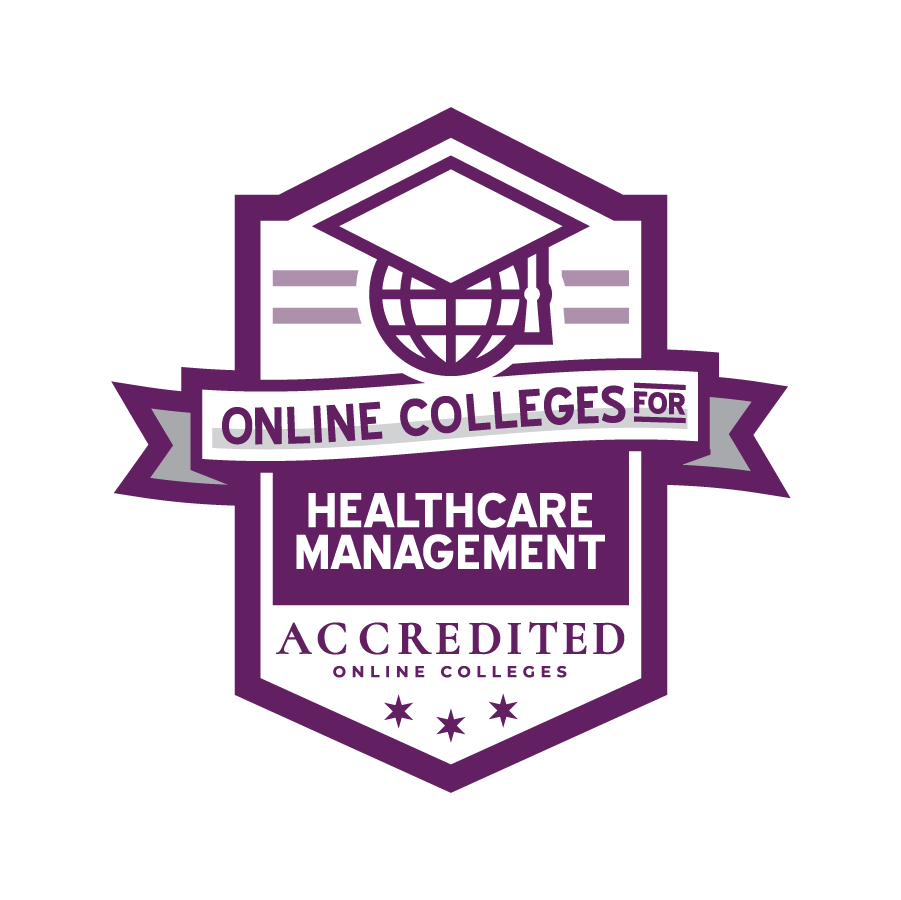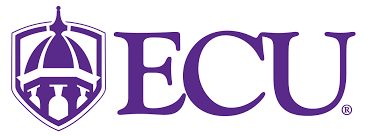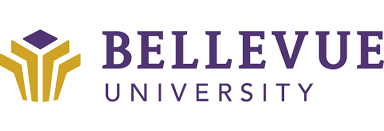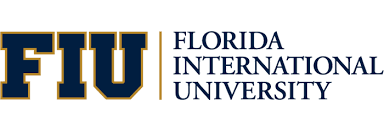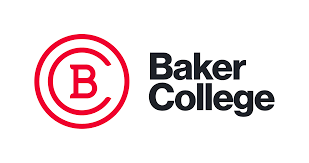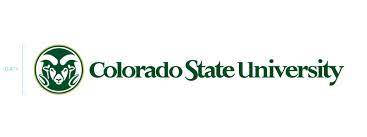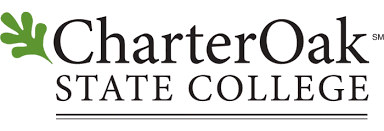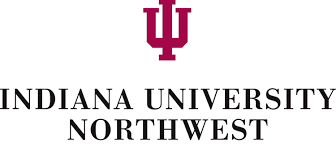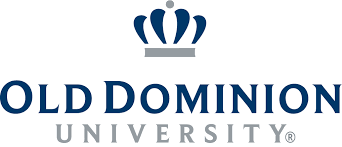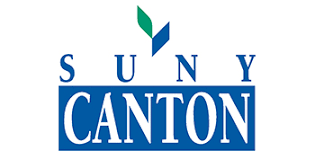The best accredited online colleges in healthcare management can see you working as a leader in an industry with strong career growth and salaries that are far beyond the national average.
According to the Bureau of Labor Statistics (BLS), graduates from a healthcare administration or healthcare management degree program are in a strong position. Growth in demand for qualified leaders in the health services industry is expected to increase by around 32% in the next decade. Comparatively, the national average is around 4-6%. Couple this with a median salary of around $100,000 in 2019, and it’s easy to see why these degrees are so popular.
Can I Get a Healthcare Management Degree Online?
You can indeed get an online healthcare management or online healthcare administration degree. Some of the cheapest online healthcare management degrees can be as little as half of the cost of tuition when compared to a traditional, campus-based program. Not to mention, these programs offer greater flexibility for busy schedules.
How Much Is a Healthcare Management Bachelor’s Degree?
In most cases, your tuition as a distance learner will be cheaper than traditional students studying on campus. Online healthcare management degree courses vary in cost, with a single course costing anywhere from around $205 to around $617 at the institutions we’ve listed below. This applies to students who are attending a college or university in their state.
While non-resident students pay more in most cases, it’s common to find accredited online colleges that do not vary their tuition rates for non-residents. With the institutions we’ve listed below, as a non-resident, you might pay up to around $850-$900 per credit hour for your courses. However, as a distance learner, you’ll save money on the costs typically associated with room and board, and commuting.
What Are the Best Healthcare Management Degrees?
Accredited Online College uses the most recent data from the Department of Education’s National Center for Education Statistics. Each program is scored individually. It’s then compared to all other universities offering that degree to determine the final score you see by each ranking. Accredited Online College considers the affordability, student-to-faculty ratio, and the number of programs offered on-campus and online. To learn more, visit our methodology page.
#1. Capella University
Capella offers a bachelor’s degree in business with a concentration in healthcare management. Comprising 8-15 general education courses, 9 core courses, 8 specialization courses, and 7-13 electives, you’ll complete a total of 180 total quarter credits. You will also complete a capstone course to practice your newly acquired skills.
There are two learning formats, and you may transfer up to three-quarters of the total program requirements from prior study at another accredited college or university. You’ll explore courses that include risk management, quality assurance, and business operations in the health service industry.
Tuition at Capella is $2,500 per 12-week billing session for FlexPath and $365-$415 per credit for GuidedPath. You could also reduce your tuition by $15,000 with a Capella Progress Reward, which is a limited scholarship offered directly by the university.
#2. Liberty University
This bachelor’s degree in business administration is accredited by the Accreditation Council for Business Schools and Programs (ACBSP). With this accreditation under your belt, you could stand a greater chance of gaining employment or promotions sought after graduation, as employers look favorably on this type of accreditation.
Rather than being focused on general business, the curriculum is uniquely tailored toward careers in the healthcare industry. You will benefit from a faculty that has many years’ combined experience in both healthcare and business. Courses will cover subjects such as medical records keeping, medical ethics, privacy laws, informed consent, and much more. You’ll also learn how to make management decisions using research and data.
Undergraduate students at Liberty University pay tuition on a per-credit basis, with the full-time rate being around $390 per credit hour. For part-time students, this rises to around $455. You’ll also need to pay a $50 application fee, in addition to $199 each semester to cover the technology costs of online learning.
#3. Ottawa University
Ottawa University’s undergraduate degree in healthcare management offers prospective students four concentrations to choose from, including economics, finance, human resources, and leadership and management. There’s also an optional clinical track for students with a registry or license. This allows you to transfer at least 30 hours’ laboratory or clinical coursework.
You’ll take courses such as Planning and Budgeting in Health Care, Human Resources in Health Care Organizations, Health Care Policy and Regulation, and Management of Health Care Organizations. The program is also accredited by the ACBSP, which could help to increase your chance of securing management positions after graduation.
Bachelor’s level courses taken as part of an online degree program at this university are charged at a rate of around $499 per credit hour. There are some exceptions, including nursing and addiction counseling, and active duty military students could see a reduced rate of around $250. All students pay a $150 technology fee each term for online instruction.
#4. East Carolina University
East Carolina University (ECU) offers a number of programs in this field, including bachelor’s degrees in health information management and health services management, in addition to a master’s degree in health informatics and information management. There are also a number of certificate programs, such as healthcare administration.
The health services management (HCM) program is fully certified by the Association of University Programs in Health Administration (AUPHA). Your curriculum comprises both traditional, face-to-face courses and online study, with an internship that will help you gain real-world experience. Many courses have been specifically tailored to help you meet prerequisites for graduate-level clinical programs.
Tuition rates at ECU are low for students who are residents of the state. As a resident, you’ll pay around $205 per credit hour, which includes $18.96 per semester hour in mandatory fees. Non-resident students pay a higher rate of around $882.67 per credit hour, including fees. More information on discounted military rates can be found on the website. It’s one of the least expensive healthcare management degrees online.
#5. Bellevue University
The Bachelor of Science in healthcare management at Bellevue University has been featured by Best Colleges as one of the Top 10 Best Online Bachelor’s in Healthcare Management. Your faculty comprises experienced professionals who have worked in a variety of healthcare settings, including hospitals, long-term care facilities, clinics, and other organizations.
Learning is structured around real-world scenarios, helping you to develop the skills needed to make informed decisions based on experience and regulations. It’s an accelerated program that requires you to study just one course at a time with the same cohort, making the program more manageable for working professionals.
Incoming undergraduate students can expect to pay around $430 per credit hour, whether studying online or on-campus. Some additional fees may apply depending on your individual course choices. What’s more, Bellevue University has a generous credit transfer program, which could see you save money on your tuition. Check out the Real Time Course Transfer Guide.
#6. Texas Tech University
This Bachelor of Science in healthcare management (BSHM) program comprises 120 credit hours and considers transfer credits on a case-by-case basis. Students choose from one of two concentrations, including a health professional concentration and executive management concentration for clinical roles and management positions, respectively. There are start dates available in spring, summer, and fall.
For admission into the healthcare professional concentration, you’ll need to have a certificate, license, or registration from one of a number of health science concentrations found on this page. Admission to the executive management concentration requires a cumulative GPA of 2.5 on a 4.0 scale, in addition to completing the Texas Common Core Curriculum.
Studying under the School of Health Professions, state residents enrolled in this program can expect to pay tuition rates of around $960 per credit hour, which includes all mandatory fees. For non-residents, the cost per credit rises to around $1,369. This makes for total estimated tuition and fees of around $3,644 or $8,522 per semester, respectively.
#7. Western Governors University
The Bachelor of Science Business Administration program at WGU is a fully online degree that has been created with working professionals in mind. There’s no synchronous learning and assignments don’t have due dates attached, so you can follow the program entirely at your own pace. Three-quarters of students complete the program within 30 months.
Key subject areas covered by the curriculum include project management; operations and supply chain management; human resource management; employment law; and healthcare delivery systems, regulation, and compliance. As a working professional, this program could help you take the leap into upper-management with confidence.
Tuition for online undergraduate programs at Western Governors University is considered highly affordable. For each six-month term, you’ll pay around $3,225 in tuition, with around $145 to cover technology and course materials. There’s also a one-time application fee of around $65 due. All courses in the curriculum can be completed online via distance learning.
#8. Florida International University – Miami, Florida
Florida International University (FIU) offers a fully online Bachelor of Health Services Administration. Studying under the College of Nursing and Health Sciences, you’ll be part of one of the largest programs of its type in the nation. The program is also accredited by the Southern Association of Colleges and Schools Commission on Colleges (SACSCOC).
In addition to being one of the largest programs in the country, it has also been ranked as the top healthcare administration bachelor’s degree by Guide to Online Schools. Completing 120 credits in total, you’ll cover subjects including leadership and management for health professionals, healthcare financial management, legal aspects of healthcare, and global healthcare systems and policy.
In-state undergraduate students pay tuition and fees of $228.81 per credit hour, which is cheaper than the average cost for discounted military student tuition across the nation. Out-of-state students pay a higher rate of $345.87 per credit hour for tuition and fees. A tuition and fees calculator can also be found on the university’s website.
#9. University of Oklahoma
The University of Oklahoma offers a BA degree in lifespan care administration. You’ll be studying at an institution that has been ranked top in the nation by The Princeton Review for academic excellence, in addition to ranking in the Top 10 Best Online Colleges by U.S. News & World Report.
This undergraduate degree is highly customizable, allowing you to tailor your studies toward child, adolescent, or elderly care. Topics covered in the curriculum include issues in geriatrics and the biology of human aging, infant and childcare, management for adolescent care, and ethical and legal issues in healthcare.
Typical undergraduate tuition for an undergraduate student who’s a state resident comes to around $2,394, with an additional $2,010.75 in hourly fees, and $126.50 in semester fees. Non-residents normally pay around $7,690.50 additional non-resident tuition in addition to those fees. This makes for a total of $4,531.25 or $12,221.75, respectively.
#10. Baker College
Comprising 120 credit hours and lasting for an average of four years, Baker College offers a Bachelor of Science in healthcare administration. The program is accredited by the Higher Learning Commission and includes courses that make up 24 hours of healthcare administration study and 24 hours of general education requirements.
The curriculum for this bachelor’s degree has been created in collaboration with an advisory board of healthcare professionals with real-world experience. You’ll gain more than 120 hours’ worth of work experience, and you’ll study courses such as Human Anatomy and Physiology and Health Care Administration. Your internship may also be paid, helping cover the cost of your tuition.
Tuition at Baker College may change at the beginning of any semester. However, typical undergraduate tuition runs at around $425 per credit hour for bachelor’s degree programs. A number of fees are applicable, including a technology fee of around $120 per semester for online learning.
#11. South Texas College – McAllen, Texas
South Texas College’s Bachelor of Applied Technology in medical and health services management is designed to prepare you for direct entry into mid-level management roles within a healthcare facility. As an online student, you’ll be able to choose between two study methods, one that follows a traditional seven-week term or an alternative competency-based program.
The latter option includes a Practicum for Health Care Managers, which will give you over 140 hours’ worth of practical experience. Otherwise, you’ll also study topics that include medical record management, risk management, finance, project management, and privacy and legal aspects of healthcare management.
The typical cost of tuition and fees for a state resident pursuing an undergraduate degree program is around $4,080. For out-of-state students, this rises to around $7,680. Books and supplies for undergraduate programs come to around $1,200, while the average cost of room and board comes to around $6,123.
#12. Colorado State University
CSU Global offers a Bachelor of Science in healthcare administration. Students will build knowledge and experience in areas including operations management and supervision, human resources, strategic planning, project management, finance, and operations. You’ll also study ethics and quality assurance in healthcare, in addition to building strong communication and decision-making skills.
Upon graduating from the program, you’ll understand what is required of a healthcare manager and the people you manage. Skills developed will include an understanding of the essential roles and functions of a healthcare manager, the ability to evaluate existing practices and implement improvements, and the ability to analyze population health data and other technologies and how these impact patient outcomes.
For online undergraduate programs at CSU Online, most tuition is charged at a single rate. Most undergraduates pay around $476 per credit, while graduate programs range from around $580 to $1,118 per credit. For an up-to-date list of current course prices, you can check out this page on the university’s website.
#13. University of Maryland University College
The health services management undergraduate degree at the University of Maryland Global Campus comprises 120 credits. Students may also transfer up to 90 credits from prior study to reduce the cost of the program and the time taken to graduate. Students may choose fully online study or a hybrid format, including some campus-based study.
The curriculum comprises 33 required major course credits, 46 credits of minor and elective courses, and 41 general education course credits. The bachelor’s program is designed for both entry-level and mid-career healthcare professionals, though it’s recommended that you have a general understanding of the healthcare industry prior to admission.
Standard undergraduate programs at University of Maryland University College are charged at around $306 per credit for state residents. For out-of-state students, the cost per credit rises to around $499. There’s a $50 admission fee due for application, in addition to other fees you can find located on this page.
#14. Southeast Missouri State University
With fully online programs available for remote study, this Bachelor of Science in healthcare management at SEMO is ranked among the top 5% of business programs in the nation. Students have access to both an informatic option and a quality and patient safety option. Courses are available in 4, 8, and 16-week formats for maximum flexibility.
If you’re interested in potential graduate study after completing your bachelor’s degree, there’s also an accelerated master’s option available. Regardless of your choices, you’ll be taught by the same award-winning faculty and coaching team as your campus-based counterparts. You may also have financial support from the Fast Track Workforce Incentive Grant.
This online program offers the same tuition rate for both state residents and out-of-state students. As an enrolled student, you’ll pay around $307.50 per credit hour. Potential financial aid includes a number of scholarship options, including one specific to the university. You can also find information on grants and other aid on their website.
#15. University of Minnesota – Crookston
In addition to being approved by both the Board of Examiners for Nursing Home Administrators (BENHA) in Minnesota and the National Association of Long-Term Care, this health management degree meets the requirements for the NAB accreditation and HSE (Healthcare Service Executive) status. Students also have access to an on-campus program and online certificate.
Courses in the curriculum include those pulled from disciplines such as technology management, liberal arts, and patient health. With these courses, you’ll gain the necessary skills and knowledge needed to work as a healthcare manager or administrator. You could find careers in community health agencies, government organizations, health insurance organizations, and hospitals and medical clinics.
Undergraduate students can study up to a maximum of 19 credits per year. Credits cost around $401.50 in tuition and fees, with a full-time course load coming to around $5,219 per semester. For online courses, there is an additional $50 charged per credit to cover online instruction delivery costs.
#16. Charter Oak State College
Charter Oak State College offers a bachelor’s in health care administration in addition to a health management major. For the health care administration major, you’ll complete 42 credits of coursework in addition to general education requirements and electives. It’s a fully online program offering 6 start dates throughout the year.
Some of the courses included within the curriculum include Health Care Systems and Administration, Health Care Quality Concepts and Principles, Regulatory and Accrediting Requirements, and Human Resource Management. For courses chosen as part of your major, you’ll need to ensure a minimum grade of ‘C’ in each course.
Full-time undergraduate students at Charter Oak State College pay around $8,254 in tuition and fees annually. For out-of-state students, this rises to around $10,796. Indirect costs are equal regardless of residency, with books and supplies around $1,600, plus around $8,000 to cover transportation, loan fees, living allowance, and miscellaneous expenses.
#17. Saint Leo University
Saint Leo University offers both a Bachelor of Science in healthcare administration and Master of Arts in healthcare management. The bachelor’s program covers subject areas including healthcare law, community health evaluation, and health information technology management. You’ll also complete a healthcare internship to gain valuable hands-on experience that could help you secure a career.
Should you choose to pursue a master’s degree at Saint Leo, you might be eligible to receive the MBA Online Academic Achievement Scholarship. Worth around $6,000 over the course of your program, you’ll need a minimum cumulative GPA of 3.0 from your qualifying undergraduate program, in addition to meeting all other requirements.
Online undergraduate students at Saint Leo University pay around $23,990 in tuition annually. Around $8,400 is due for the average dorm room, and your meal plan costs around $5,900. These figures apply to full-time study of around 12-19 credit hours per semester. You’ll find a net price calculator on there website for more accurate estimates.
#18. Jackson State University – Jackson, Mississippi
Through JSU Online, students can pursue a Bachelor of Science in healthcare administration. Combining theoretical study and practical education, you’ll have the chance of gain field experience, which could help you find entry-level management positions in the healthcare industry after graduation. Graduates commonly work in hospitals, clinics, nursing homes, physician group practices, and government agencies.
Freshmen who are interested in applying will need to have a minimum 3.2 GPA from high school, with ACT scores of at least 16. However, there are some caveats that may mean you can still apply if you don’t meet these requirements.
At JSU Online, undergraduate tuition averages at around $366 per credit hour, while graduate programs are charged at around $462 per credit hour. Jackson State University offers a number of scholarship types, including those for first time freshmen, development scholarships, and outside scholarships. See their website page for more information on financial aid.
#19. Montana State University – Billings, Montana
Montana State University offers a Bachelor of Science in health administration. As an enrolled student, you’ll study key competencies from areas including general management, health industry and policy, leadership and management, communication, and critical thinking. These subject areas and skills will prepare you for entry-level management positions in healthcare agencies and facilities.
This bachelor’s degree includes 32 credits of academic foundation courses, 39 credits of health administration major study, 15 credits of general business study, and 13 credits of other required courses. You’ll also choose a track from either business or long-term care and public health. What’s more, the curriculum includes an internship for practical experience.
The estimated cost of attendance for Montana residents taking 12 or more credits per semester is around $19,820 annually. This includes around $6,220 in tuition and fees. Additional fees apply to some programs, with this healthcare administration degree attracting a $1,600 annual fee. Non-residents pay around $19,950 in tuition annually.
#20. Indiana University-Northwest – Gary, Indiana
At Indiana University Northwest, you can pursue a bachelor’s degree in health information management (HIM). This program is designed for professionals who work with patient healthcare data on a daily basis, and involves the collection, aggregation, analysis, and dissemination of data in a controlled and secure manner.
As a fully online program, you’ll enjoy flexible study while selecting from a range of health administration and information courses. These might include Coding & Classification Systems, Computer Systems in Healthcare, Health Record Law and Ethics, Healthcare Data Management, and Research Principles in HIM for example. You can consult with an academic advisor to help you plan the most appropriate courses for your desired career goals.
According to thebestschools.org, Indiana University Northwest is the most affordable four-year college in the state. Tuition is charged at a flat rate for between 12-18 credits per semester. To get an accurate estimate of your cost of attendance, check out the tuition fee estimator and Northwest’s fees on their website.
#21. Purdue University Global – Davenport, Iowa
Purdue University offers a Bachelor of Science in healthcare administration via its online Global Campus. This program features 10-week terms, with each course requiring around 15-18 hours’ worth of effort to complete on average. There are four start dates throughout June, July, and August for convenience.
Given the scope of the healthcare industry, Purdue allows you to customize your degree by selecting electives within a particular area of study. You’ll also gain hands-on experience through an internship, though as an online program, the internship is optional. You could even shorten your route to a master’s degree by choosing the accelerated undergraduate degree option.
This online bachelor’s degree comprises 180 credits in total, with each credit costing around $371. There’s a tuition calculator on the university’s website for calculating your approximate cost of attendance. There are a number of financial aid options for students, including transfer credits and experiential learning. Check out the page for more information on assistance.
#22. University of Louisiana at Lafayette
This Bachelor of Science in health services administration is fully online and features both accelerated 8-week courses and 16-week course options. You could also transfer any eligible college or associate degree credits to shorten your path to your bachelor’s degree. Classes typically start in June, with a May deadline for admissions.
As an enrolled student, you’ll have access to online tutoring resources, round-the-clock technical support, and fully online library access. First-time freshmen need to provide high school transcripts and ACT or SAT scores for consideration, while transfer students require a minimum of 24 hours’ worth of college credits from an accredited institution.
Online programs at the University of Louisiana at Lafayette are charged at a flat rate, with tuition costing around $380 per credit hour for undergraduates. Graduate programs are charged at just $80 per credit hour. These rates do not include any additional course fees or laboratory fees.
#23. Pennsylvania State University
PennState World Campus, the online learning branch of Penn State, offers a fully online bachelor’s degree in health policy and administration (HPA). The faculty teaching this program have over 30 years’ worth of combined experience instructing undergraduates in this subject area. What’s more, the department belongs to the Association of University Programs in Health Administration (AUPHA).
The curriculum for this program combines courses in health sciences, business administration, business, and the liberal arts. Thanks to the broad scope of study, you could find a career in almost any type of healthcare organization, including teaching hospitals, physician offices, non-for-profits, and more. Your internship will set you up with experience that could help you secure one of these roles.
Pennsylvania State University’s online bachelor’s degrees are ranked in the top ten nationally by U.S. News & World Report. Comprising 120 credits, this program costs around $576-617 per credit. Full-time students taking 12 or more credits per semester can expect to pay between $6,994 and $7,549 per semester in tuition.
#24. Old Dominion University
ODU Online offers a Bachelor of Science in health services administration. Students may choose from a full program with online courses or a degree completion program, though the latter is for students who already have some college credits. Both programs are taught by the College of Health Sciences and are part of the AUPHA association.
Whether you’re a new freshman coming from high school or a professional already working in the healthcare industry, this program has been designed for you. The courses are geared toward preparing you to improve the delivery of health services through effective management and policy implementation.
Virginia residents enjoy the lowest undergraduate tuition rates at Old Dominion University, with a single credit hour costing around $360. Students from out of state or international countries pay around $407 per credit hour. Tuition is most expensive for Virginia residents without a Virginia domicile, costing around $1,032 per credit hour.
#25. SUNY College of Technology at Canton – Canton, New York
SUNY Canton’s Bachelor of Science in healthcare management includes a heavy emphasis on business management and fundamentals, with courses that cover economics, healthcare finance, technology, and the general principles of business and management. You’ll study courses that include Healthcare Finance, Healthcare Economics, Health Information Technology, and Legal and Ethical Issues in Healthcare, for example.
For students who are willing to relocate after graduating, the program boasts a 100% job placement rate. Careers that could be open to you after graduation include healthcare administrator, human resources manager, marketing manager, and more. Finally, you could also gain a master’s degree at Clarkson University with an additional year’s study through a partnership between both institutions.
Online and commuter tuition at SUNY Canton are charged at the same rate. Undergraduates pay tuition of around $3,535 per semester, in addition to around $856.50 in fees. This makes for a total estimated cost of attendance (COA) of $6,867.50 per semester and $13,615.00 annually. More information can be found here.
What Kinds of Courses Will I Take With a Healthcare Management Degree?
Your specific program will determine the course load that you take, but there are some courses that are extremely common among curriculums throughout the nation. These include medical terminology, human resources management, healthcare finance and accounting, epidemiology, and healthcare management. Specific course names may vary from one institution to the next.
Medical terminology is an essential area of study, as it will give you an understanding of terms that you’re going to come across routinely when working in the industry. With such a broad range of subfields in this industry, it’s important that you know what they mean if you’re going to become an effective communicator and leader.
Human resources management will give you the resources you need to manage the recruitment of new personnel, continued professional development, disciplinary action, and more. Meanwhile, with an understanding of finance and accounting, you’ll be able to deal with basic accounting or budget responsibilities, such as those typically assigned to medical office administrators.
With epidemiology, you will gain a high-level understanding of the control and spread of infectious diseases. Finally, the healthcare management course will usually provide an introductory overview of the healthcare industry, common theories and concepts in healthcare facilities and organizations, and the responsibility of each healthcare professional within this setting.
What Is the Earning Potential for a Healthcare Management Major?
A healthcare management bachelor’s degree salary can be highly appealing for students who are motivated by money. Aside from the strong growth potential in this field, upper management roles in the healthcare industry can attract annual salaries that are at least twice the U.S. national average salary for all other occupations combined.
According to the U.S. Bureau of Labor Statistics (BLS), those employed as leaders and managers in the health service industry have excellent job growth prospects; there’s an expected increase of around 32% in demand for qualified professionals through 2029. This is far beyond the national average of around 4-5%.
The median salary for those working in this field was around $100,980 in May 2019, with the lowest earners averaging around $58,820 and the highest ten percent making around $190,000 annually. This is more than double the national average salary for all other occupations combined.
What Kinds of Careers Can I Pursue With a Healthcare Management Major?
With a strong understanding of healthcare administration, which you’ll gain from either a healthcare administration or healthcare management degree, you could find work as a medical office administrator. This could include handling enquiries, managing financial accounts, handling contracts, dealing with insurance agencies, and some human resources tasks.
Health information officers often come from a similar academic background. These professionals are responsible for the proper management and security of all patient medical records. Dealing with a high volume of data on a daily basis and staying up to date on changes in data security and software, you could also be asked to develop policies for maintaining and updating patient records.
Some graduates pursue work as a social and community service manager. In this role, you’ll work with a variety of other healthcare professionals and social workers to manage and implement social service and community programs. The idea is to improve the health and lifestyles of people of all ages, helping them to access much-needed services such as counseling, child services, and support with addiction or domestic problems.
What Are the Best Online Healthcare Management Certificates?
If you’re interested in picking up a health management certificate, you could still study remotely via online distance learning. However, bear in mind that some institutions require a bachelor’s or even a master’s degree as a prerequisite to being eligible to sit an examination for such a certificate. Some of the colleges and universities we’ve outlined above offer certificate programs in addition to master’s and bachelor’s degrees.
Otherwise, there are other accredited online institutions offering online certificate programs. Yale’s School of Management offers an online program that’s reasonably fast to complete on average, and it costs around $2,500. You’ll be expected to complete 5-7 hours of coursework per week, including quality and compliance, healthcare management, financial management, and funding acquisition.
Another institution offering a certificate program is the Milken Institute of Public Health. This online healthcare management course lasts for just six weeks and costs around $1,900. You’ll learn good management practices in healthcare, how the industry works, how funds are allocated, and how to lead a team while solving management problems.
If you’re interested in pursuing higher education, then you should check out The 15 Best Online Master’s in Health Science and The 20 Best Bachelor’s in Health Informatics!

